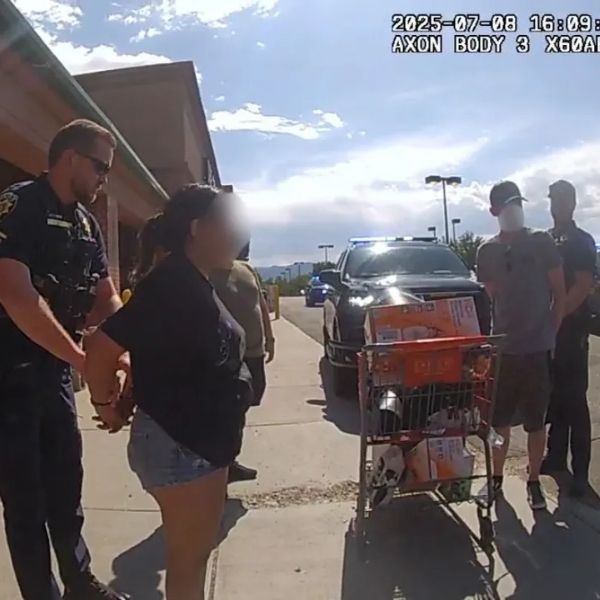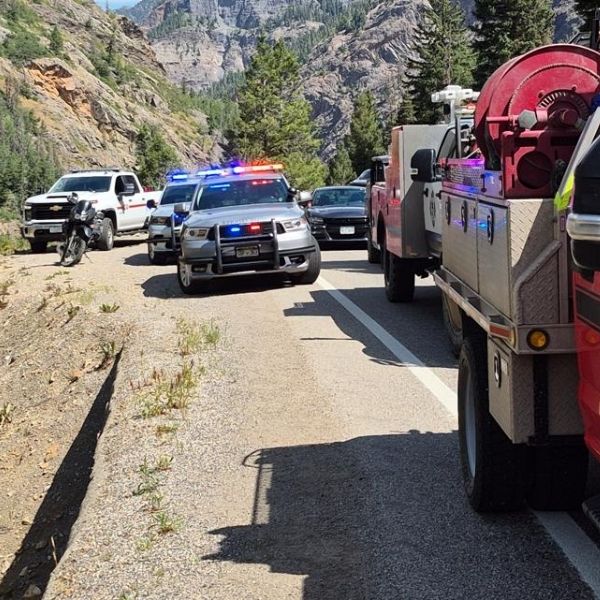Texas – Ding dong ditch—a prank where individuals ring a doorbell and quickly run away before the homeowner answers—has been a mischievous pastime for generations. But in Texas, what seems like a harmless joke can escalate into something much more serious depending on where and how it occurs. This article explores the legal nuances of ding dong ditching in Texas, using real-world examples, referencing laws and statutes, and highlighting what Texas residents in places like Dallas, Houston, San Antonio, Austin, and smaller towns need to know.
Understanding Ding Dong Ditch: More Than a Childhood Game
Before diving into legality, it’s important to understand what ding dong ditch actually entails. Typically favored by teens or young children, this prank involves approaching someone’s residence, ringing the doorbell, and bolting before the occupant answers.
In major suburban neighborhoods like Plano, The Woodlands, or Round Rock, residents occasionally report incidents of ding dong ditching, especially around Halloween or the last day of school. While many see it as harmless, recent trends show that both law enforcement and homeowners take these disruptions seriously, especially with modern technology like doorbell cameras becoming ubiquitous.
1.What Texas Law Says About Ding Dong Ditch
Texas does not have a specific law that names “ding dong ditch” as a criminal act. However, several existing statutes can apply based on the circumstances surrounding the prank.
Trespassing
Texas Penal Code §30.05 criminalizes trespassing, which is defined as entering or remaining on property without effective consent. Ding dong ditching often involves stepping onto someone’s porch or yard—private property. If the property displays a “No Trespassing” sign (common in neighborhoods around Houston and San Antonio), or the homeowner has explicitly asked someone to stay away, even a brief presence at the door can technically be enough for a criminal trespass charge.
Even in the absence of signs, law enforcement in cities like Arlington and Fort Worth may still cite individuals if the property owner files a complaint and has video evidence from a security camera.
Disorderly Conduct
Disorderly conduct—defined by Texas Penal Code §42.01—broadly covers behavior that causes unreasonable noise, alarms or annoys others, or disrupts the peace. Ding dong ditch, if repeated or done in a disruptive manner, falls under this statute, especially if it occurs late at night in places like Sugar Land or suburban Dallas.
Harassment
Harassment involves actions designed to alarm or annoy another person. When ding dong ditching becomes targeted—such as if a group repeatedly annoys the same family in Pflugerville or College Station—it can cross the line from prank to actionable harassment.
Criminal Mischief and Damage
What starts as ringing the doorbell can escalate. In numerous Texas towns, reports have documented cases where pranks turned destructive—such as breaking a doorbell, damaging the door, or leaving behind substances on the property. At that point, criminal mischief statutes apply. Vandalism, no matter the intent, can bring fines and criminal charges.
Escalation to Felony Offenses
While rare, certain acts related to ding dong ditching can result in felony charges. If a prankster causes a fire (for example, with the infamous “burning bag” prank), arson charges may result, especially if the residence is damaged.
2.Real-World Cases from Texas Cities and Towns
Dallas
Police in Dallas report dozens of calls every year about nuisance pranks, especially in densely populated suburbs. Nearly 70% of homeowners in Dallas suburbs now use security cameras, making it easier to identify pranksters—and more likely for law enforcement to get involved.
Houston
In Houston’s West University neighborhood, a 2024 incident involved teens repeatedly performing ding dong ditch at several homes. They were caught on camera and, after several warnings, faced misdemeanor trespassing charges. The community cited a sense of increased unease, especially given that some homes had previously experienced burglaries.
San Antonio
During a recent Halloween in San Antonio, several incidents of ding dong ditch were reported in Alamo Heights. In one instance, after a resident’s video went viral, police issued warnings to a group of teens. The San Antonio Police Department emphasizes that while first-time offenses often result in warnings, repeat pranksters risk legal consequences.
Austin
The quirky neighborhoods around South Congress in Austin have experienced waves of doorbell pranks. As of 2023, Austin Police report that ding dong ditch makes up almost 3% of minor juvenile complaints each year, with the vast majority involving teenagers. Most incidents resolve with a conversation between law enforcement, parents, and homeowners, but the pattern changes if property damage occurs.
Smaller Texas Communities
Even smaller towns like La Grange, Fredericksburg, or Nacogdoches have seen their fair share of problems. In La Grange, a group of teens was charged after their pranks escalated to breaking doors and damaging mailboxes, resulting in both criminal mischief and burglary charges.
Stats and Facts:
-
Across Texas, it’s estimated that over 80% of households in urban centers (Houston, Dallas, Austin, San Antonio) are equipped with doorbell cameras or some form of home security system as of 2025.
-
Police departments report that pranking incidents peak around major holidays. In 2024, the state saw a 15% uptick in nuisance calls during Halloween week alone.
-
Surveys from North Texas suburbs show that 62% of residents consider ding dong ditching a “serious nuisance,” with 35% saying it made them fear additional crimes like burglary.
Why Homeowners Are Concerned
While many consider ding dong ditch harmless, several factors contribute to unease among Texas homeowners:
-
Security Concerns: With Texas ranking among the top states for property crime, especially in urban areas, unusual behavior at the door is cause for alarm.
-
Elderly Residents: In cities like McAllen, where many communities cater to retirees, repeated disturbances can cause distress, pose safety risks, or potentially trigger medical emergencies.
-
Defensive Actions: In rural or gun-friendly communities such as those around Amarillo or Lubbock, startled homeowners may react with force, mistaking pranksters for would-be intruders. Law enforcement has warned that such situations can escalate quickly and dangerously.
Legal Penalties for Ding Dong Ditching in Texas
While each case is determined individually, the following are common legal consequences associated with ding dong ditching in Texas:
| Offense | Possible Charge | Penalty/Severity |
|---|---|---|
| Entering private property | Criminal Trespass | Misdemeanor, fines, or arrest |
| Repeated/targeted pranks | Harassment/Disorderly Conduct | Misdemeanor, citations |
| Damaging property | Criminal Mischief/Burglary | Misdemeanor or felony, fines, jail time |
| Creating safety risks (arson) | Arson | Felony, prison terms |
-
Fines: For minor trespass or disorderly conduct, fines can range from under $100 up to several hundred dollars, depending on circumstances.
-
Community Service: Especially common for minors, community service may be assigned in place of or in addition to fines.
-
Juvenile Records: Teens committing these pranks may face juvenile charges, impacting future opportunities.
-
Arrest: Particularly for adults, for repeated offenses, or when the prank escalates into criminal mischief or creates fear of home invasion.
-
Civil Liability: In rare cases, a homeowner could seek damages in civil court if their peace was persistently disturbed or property damaged.
How Ding Dong Ditch Can Escalate from Prank to Crime
The legal outcome depends on several factors:
Frequency: A one-time prank typically results in a warning. Repeated incidents, however, can establish a pattern of harassment or disorderly conduct.
Intent: If the goal was to intimidate, threaten, or target a specific individual in places like Waco, prosecutors may pursue more serious charges.
Damage: Simple pranking may be treated leniently, but any broken property or evidence of tampering instantly raises the stakes.
Location: Urban areas with homeowner associations—like Frisco or Katy—may have stricter local ordinances that go beyond regular state statutes.
Teenagers, Parents, and Legal Responsibility
Texas parents should understand that they may sometimes be held civilly liable for the actions of their children. School resource officers in cities like Irving and Denton regularly speak to students about the risks of even minor pranks gone wrong.
Repeat offenders, especially if they harass the same household or cause a community disturbance, can face consequences including school disciplinary action and intervention by juvenile courts. Families in Galveston, El Paso, and Corpus Christi have all reported cases where seemingly harmless fun ended in a court appearance and a permanent addition to a juvenile record.
What Texas Police Departments Recommend
-
Talk to Your Kids: In places like New Braunfels and Georgetown, law enforcement emphasizes communication. They encourage parents to explain the possible outcomes of property pranks.
-
Know Your Neighbors: Pranks are less likely to go awry in communities with open communication between neighbors.
-
Be Aware of Local Ordinances: Different cities and neighborhoods have their own regulations. For instance, gated communities in Pearland often have stricter enforcement.
Final Thoughts: Is Ding Dong Ditch Illegal in Texas?
While you won’t find ding dong ditch specifically named in Texas statutes, the reality is that this prank can be illegal under various laws depending on circumstances. If you’re running through someone’s yard in Fort Worth, ringing their bell in Austin, or startling seniors in Brownsville, you could find yourself facing charges ranging from trespassing to harassment or even criminal mischief.
Texas law is clear that respect for private property and the peace of others is paramount. What may begin as innocent fun can quickly escalate—especially in an era of heightened security and digital surveillance. Residents across Texas, from the metroplex to the Hill Country, are encouraged to be mindful of these liabilities and always choose pranks that are lighthearted, legal, and leave everyone smiling.
For Texans, the best advice is simple: have fun, but always know where to draw the line. And if in doubt—ask, don’t ditch.
Helpful Links
- https://www.lawlegalhub.com/is-it-illegal-to-ding-dong-ditch/
- https://codelibrary.amlegal.com/codes/texascity/latest/texascity_tx/0-0-0-3645
- https://law.justia.com/codes/texas/water-code/title-4/chapter-56/subchapter-d/section-56-128/
- https://codes.findlaw.com/tx/transportation-code/transp-sect-254-005/
- https://statutes.capitol.texas.gov/docs/PE/htm/PE.42.htm
- https://texas.public.law/statutes/tex._transp._code_section_254.007
- https://www.youtube.com/watch?v=S4ksT6lvfGc
- https://statutes.capitol.texas.gov/SOTWDocs/TN/htm/TN.254.htm
- https://en.wikipedia.org/wiki/Knock_down_ginger
- https://www.youtube.com/watch?v=d8JcMdExv3w
- https://www.youtube.com/watch?v=e0XGashHMmo

Mrs. Odice has been a teacher here for 9 years. She likes yoga and spends most of her time with her 3 kids. She also grew up going to Douglas County schools and is Canadian.















Leave a Reply